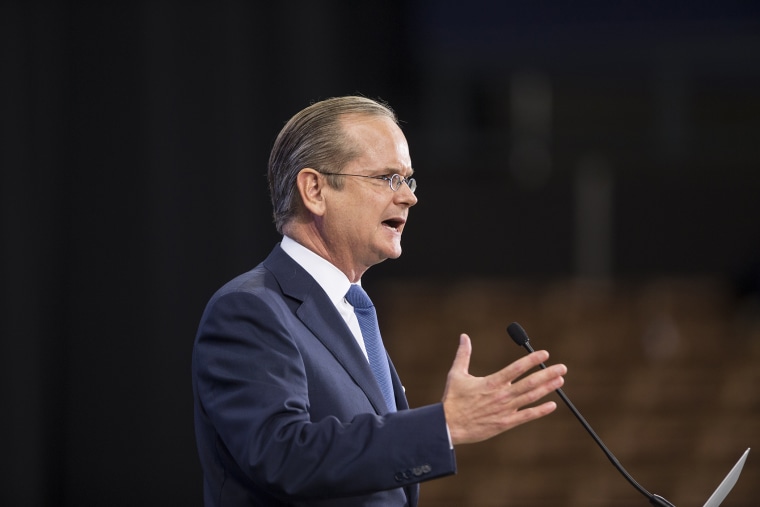After failing to find an opening in the Democratic presidential primary, Harvard professor and longshot presidential candidate Lawrence Lessig announced Monday he will drop out of the race, accusing the Democratic Party of locking him out of the process.
"I must today end my campaign for the Democratic nomination," Lessig said in a video posted online. "It is now clear that the party won’t let me be a candidate, and I can’t ask people to support a campaign that I know can’t even get before the members of the Democratic Party, or to ask my team or my family to make a sacrifice even greater than what they’ve already made. No doubt a better candidate could have gone further though I doubt anyone could have worked harder."
RELATED: Lessig absent from debate, takes questions
Lessig is the latest candidate to drop out of the Democratic field, whose size has now been cut in half in just two weeks. Former Sen. Jim Webb and former Gov. Lincoln Chafee both dropped out last month, the same week Vice President Joe Biden decided against a presidential bid. The race has largely come down to a two-way faceoff between former Secretary of State Hillary Clinton and Vermont Sen. Bernie Sanders, along with former Maryland Gov. Martin O'Malley, who hopes the winnowed field will give him a chance to break out of his 1% polling rut.
Lessig launched his campaign just 57 days ago with the singular goal of calling attention to the need for campaign finance reform. He managed to raise more than $1 million in contributions, attract some well known Democratic operatives, and even run a TV ad, but was never taken seriously in a field where even the dark horse candidates had served as governor or senator.
The campaign finance reform advocate had staked his bid on getting into at least one Democratic presidential debate, and now blames the Democratic National Committee for allegedly changing the rules to keep him out.
In 2014, Lessig started a super PAC that hoped to end super PACs by supporting candidates who would push for campaign finance reform. But he abandoned that effort after the midterm election, declaring it a failure.
